Man who was the only doctor on his team had to remove his own appendix and miraculously survived
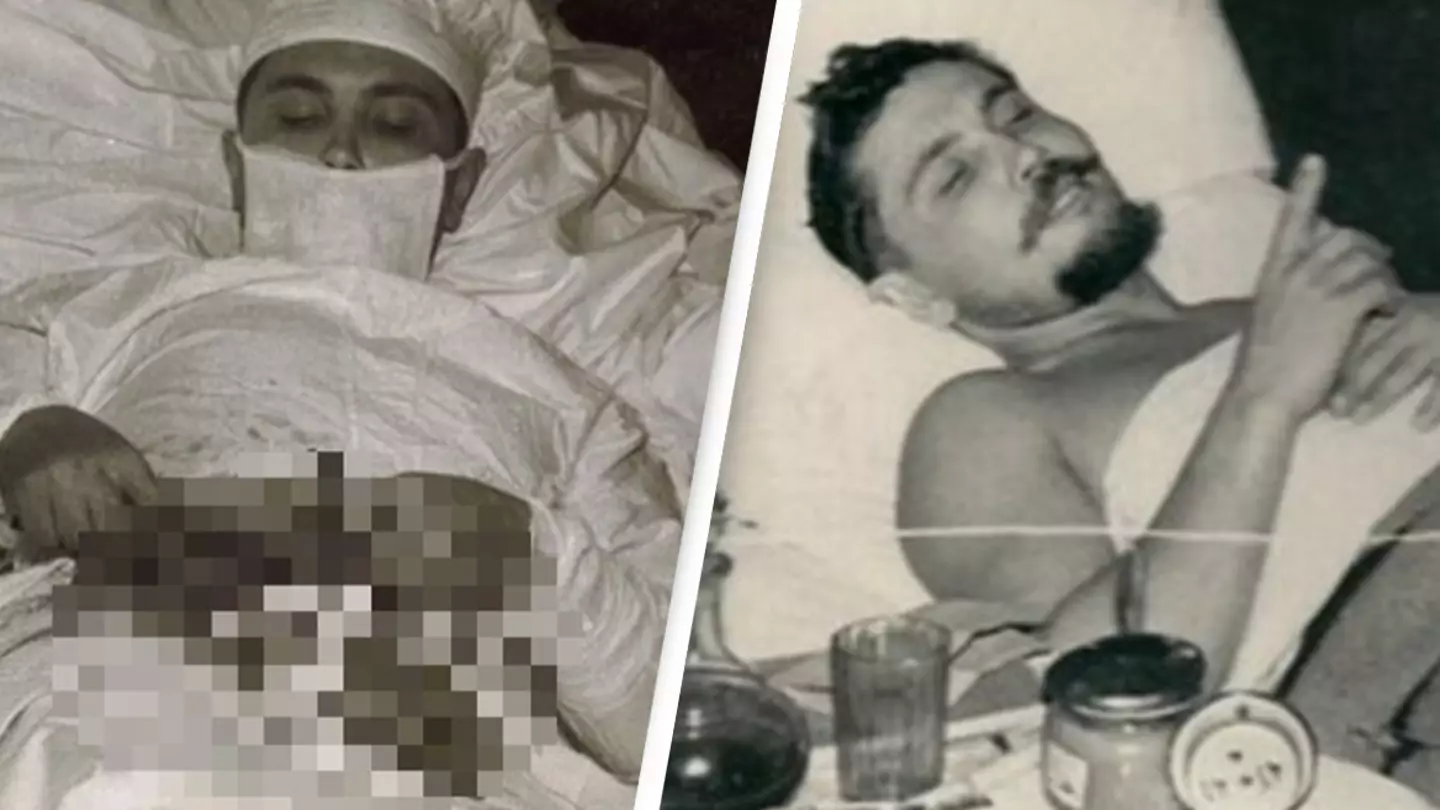
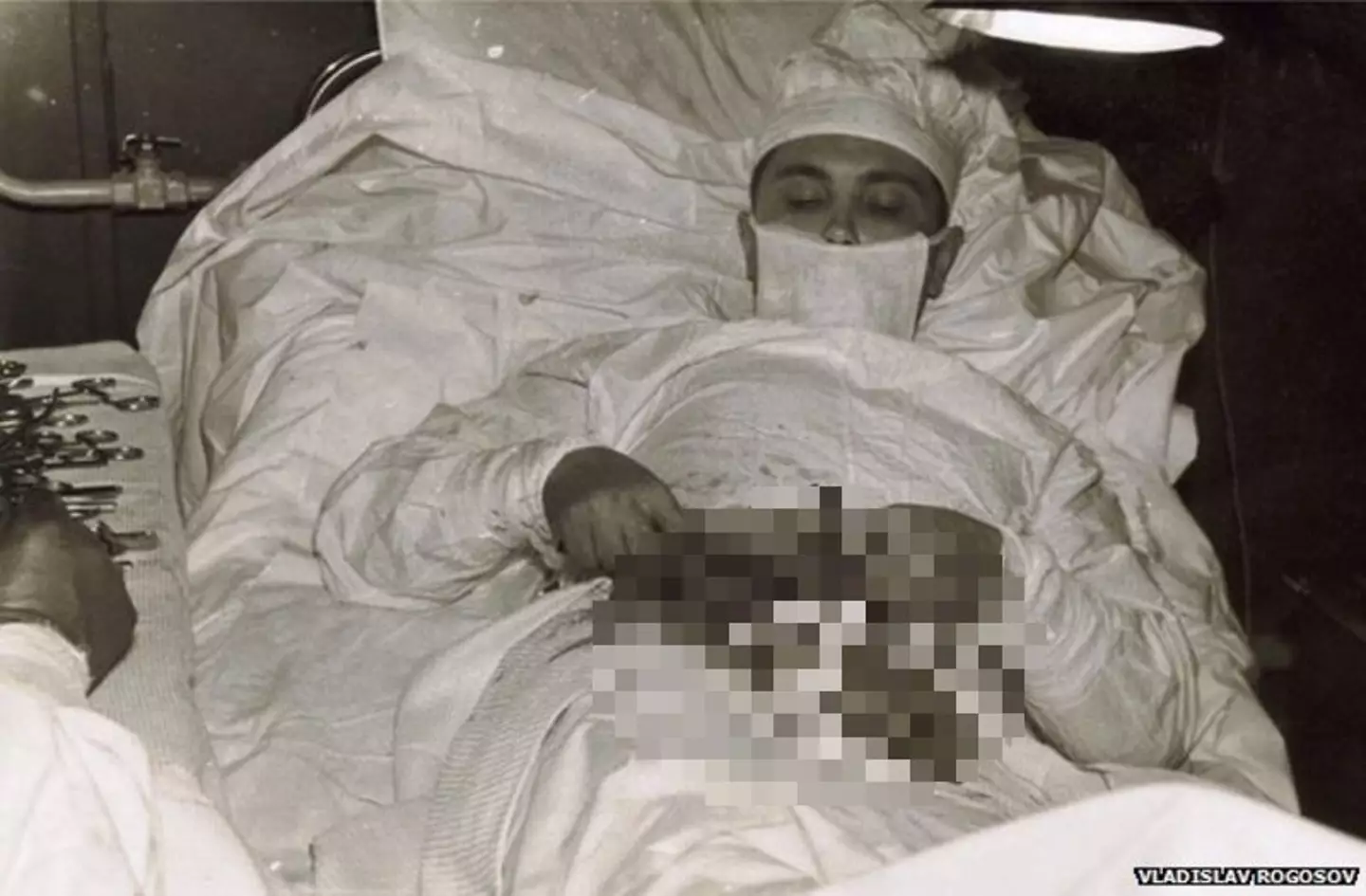
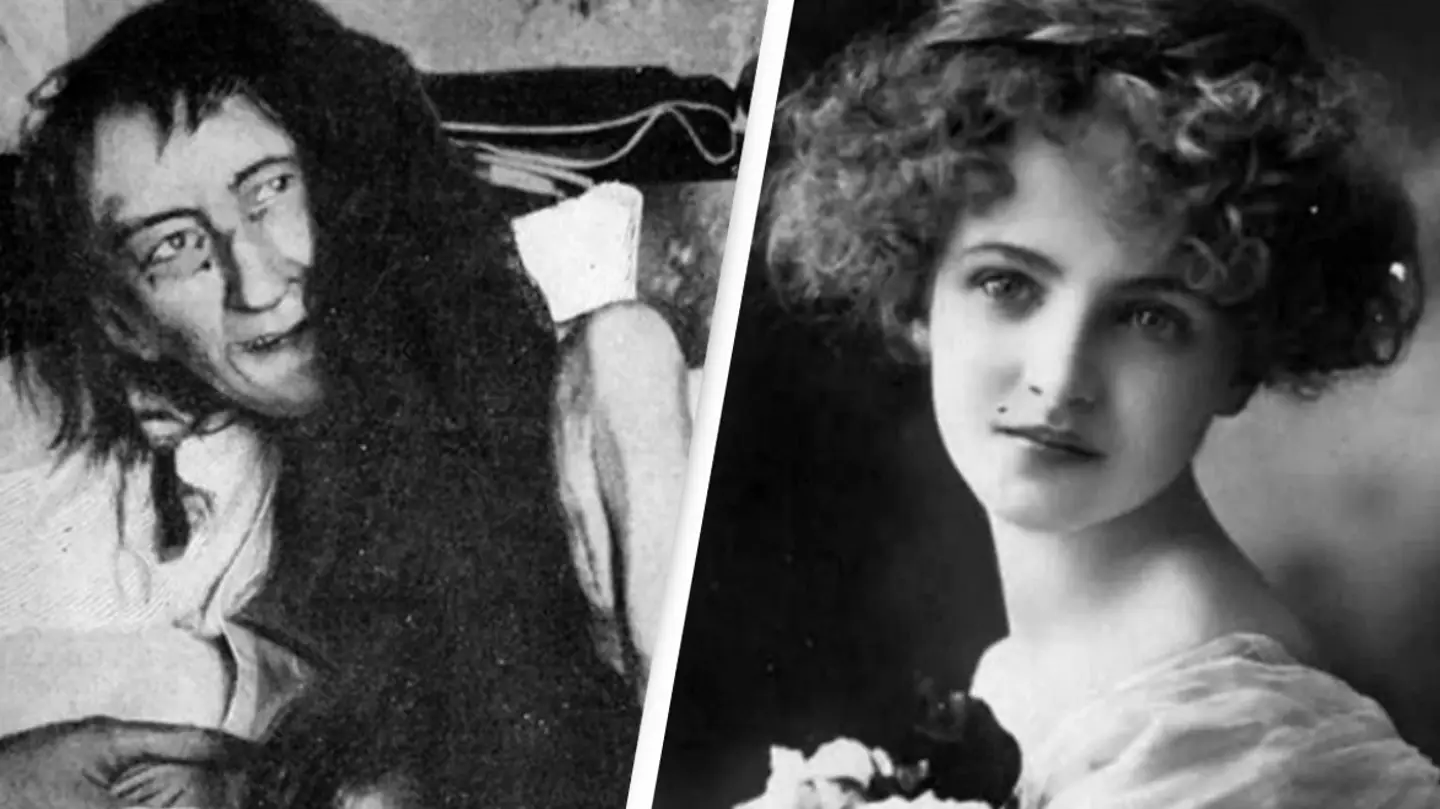
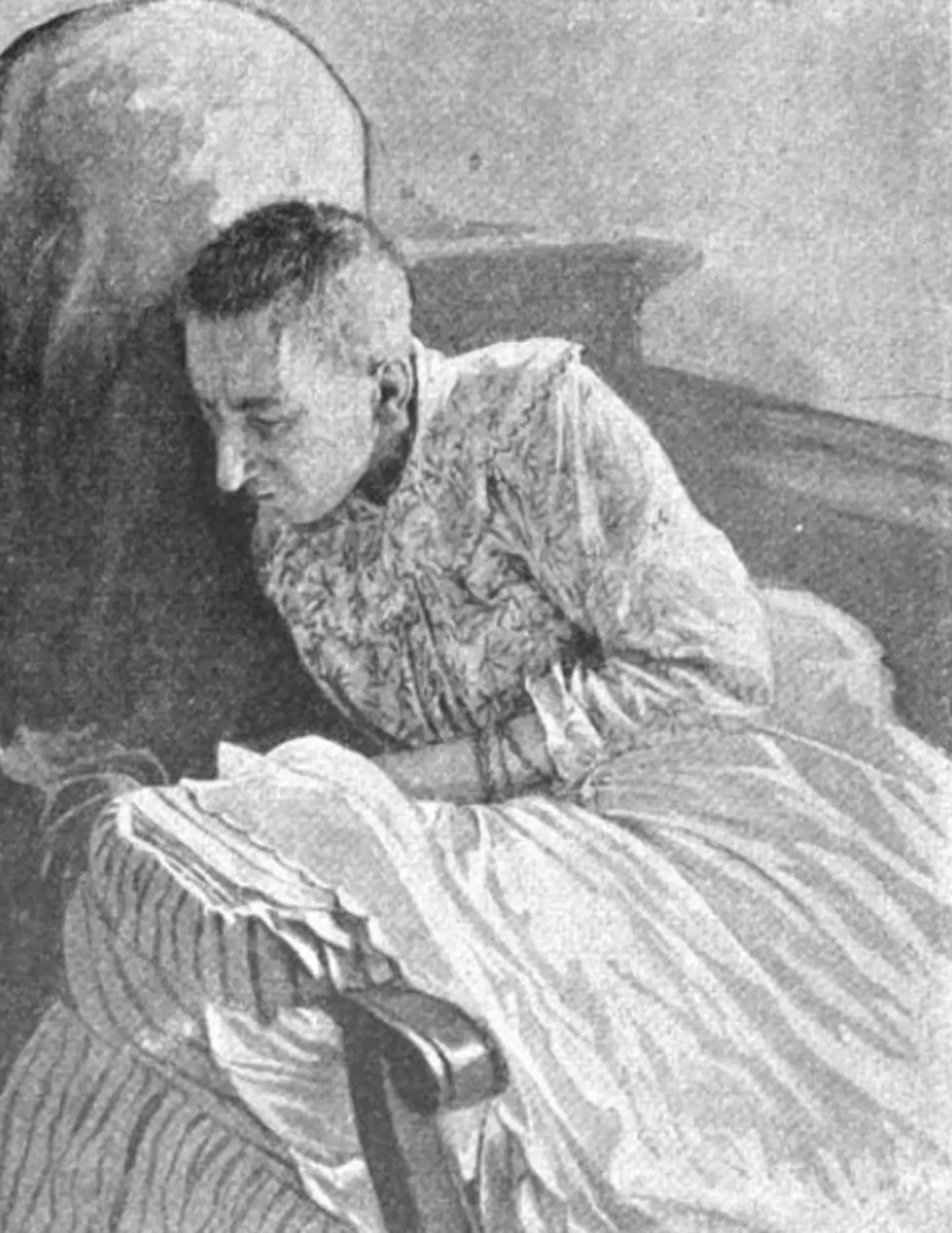

She was injured by a boat propellor in an accident Kit Roberts A woman who suffered a horrendous boating accident that saw her bottom get 'chopped off' has shared her experience now she is on the road to recovery. Kenzey Hunt, 20, had been out tubing with her sister in South Carolina when the shocking incident happened. For those unfamiliar with water-based recreation , tubing is where someone sits in a big rubber tube and is pulled along a body of water by a boat at usually fast speeds. But what should have been an afternoon of fun turned into a nightmare for Kenzey when the boat which had towed her swung around to pick her back up again. In a horrendous accident, Kenzey ended up caught in the boat's propellor which caused awful injuries to her bottom. The 20-year-old has since taken to TikTok to document her recovery from the injury. Describing the incident, she said: "He made a really sharp U-turn and the rope was really slacked, and he just came, hit me, head on, and I was still laying on the tube headfirst." TikTok / @ sydhunt She went on to talk about how her injuries had resulted in her rear end being 'open' and having to be reassembled by medics . and there was just blood everywhere. ”
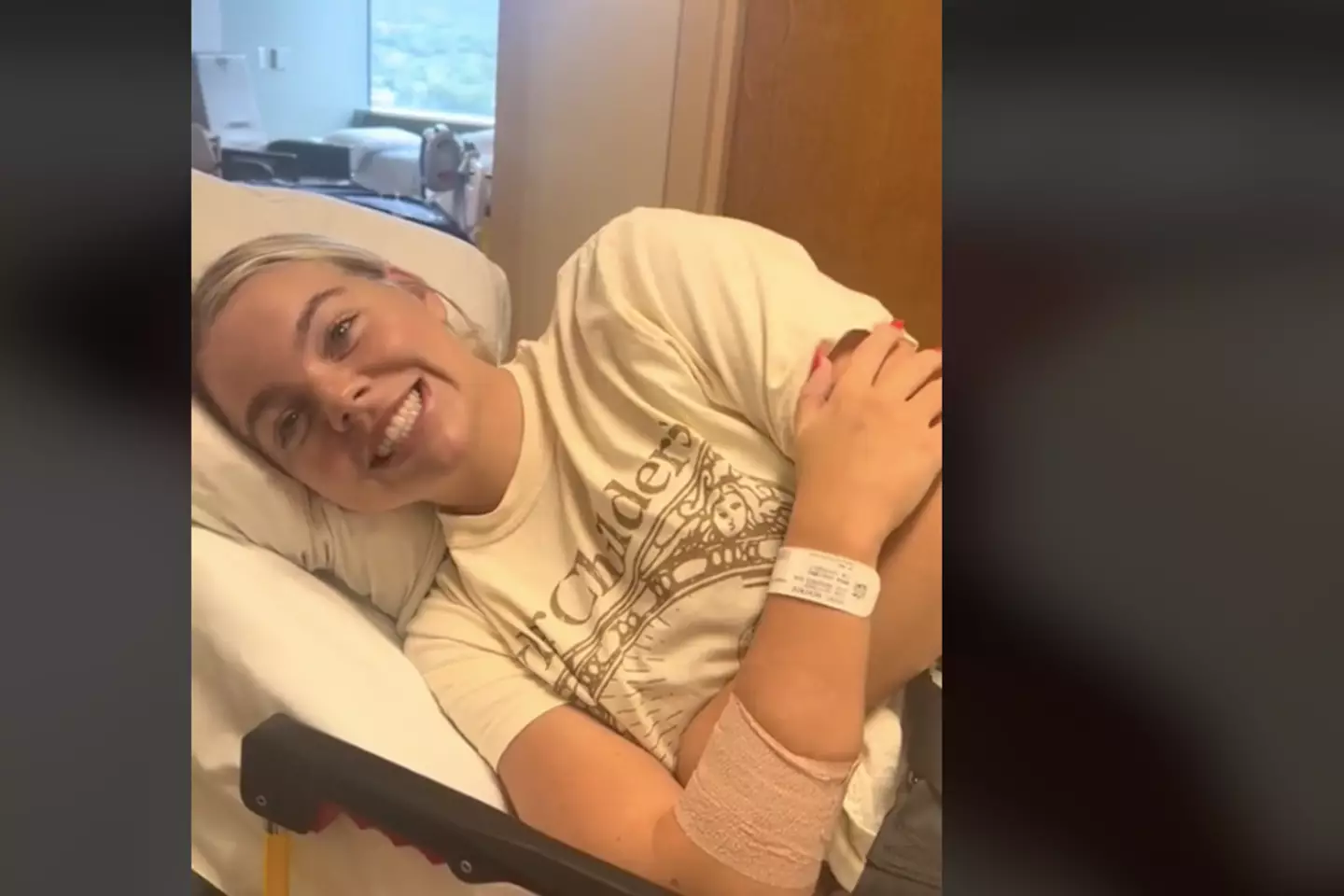
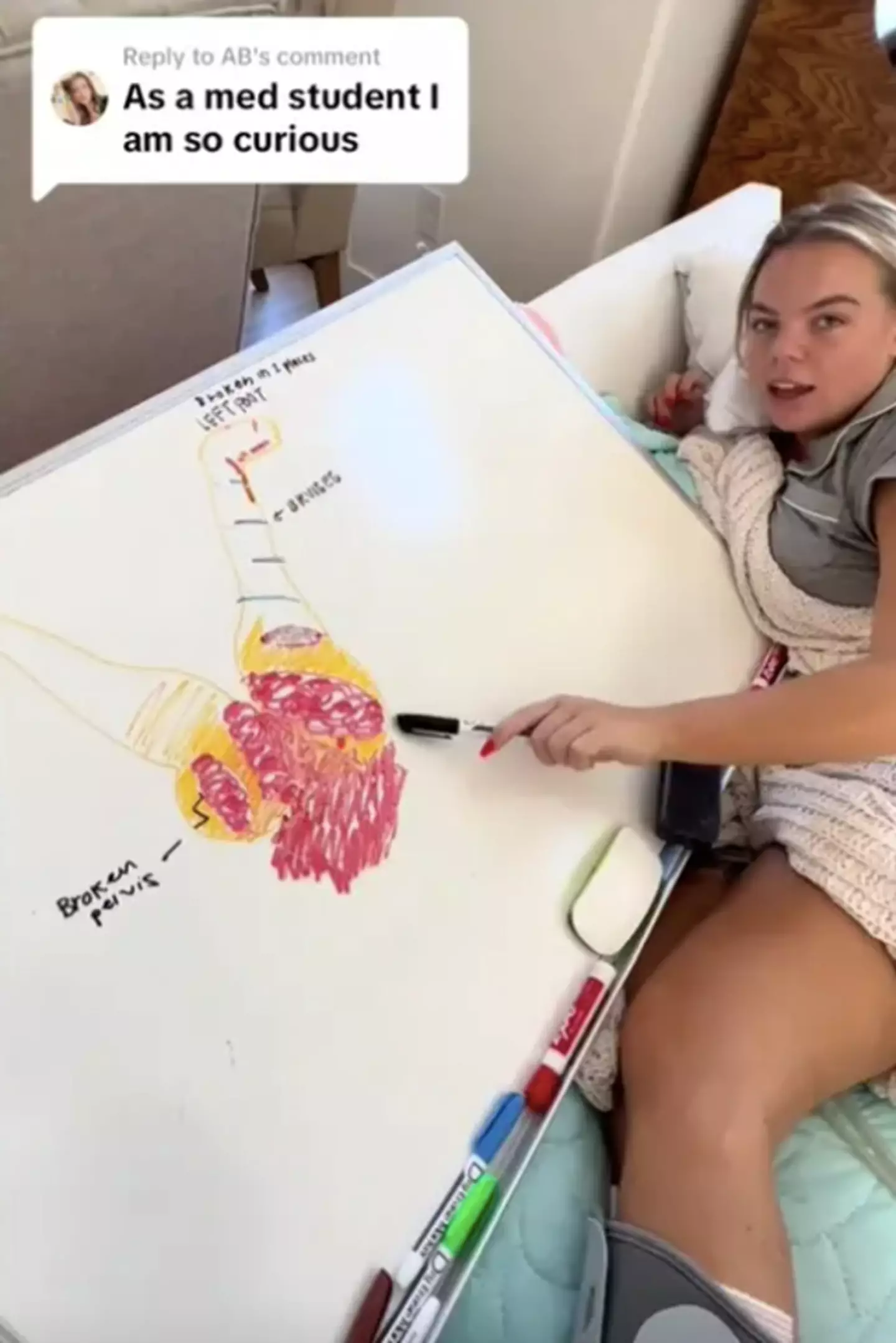
Another said they weren't 'able to determine positively' whether a pair of Sherwood's shoes matched bloody footprints found at the Boyds' house.
A doctor testified it was 'highly probable' a cut on Sherwood's wrist had been made by Evangela, but later said they could not say with 'absolute certainty' or even 'reasonable certainty'.
And - while facing serious charges themselves - one of Sherwood's former friends claimed they'd heard him admit to the crimes. They received no prison time in return for their testimony.


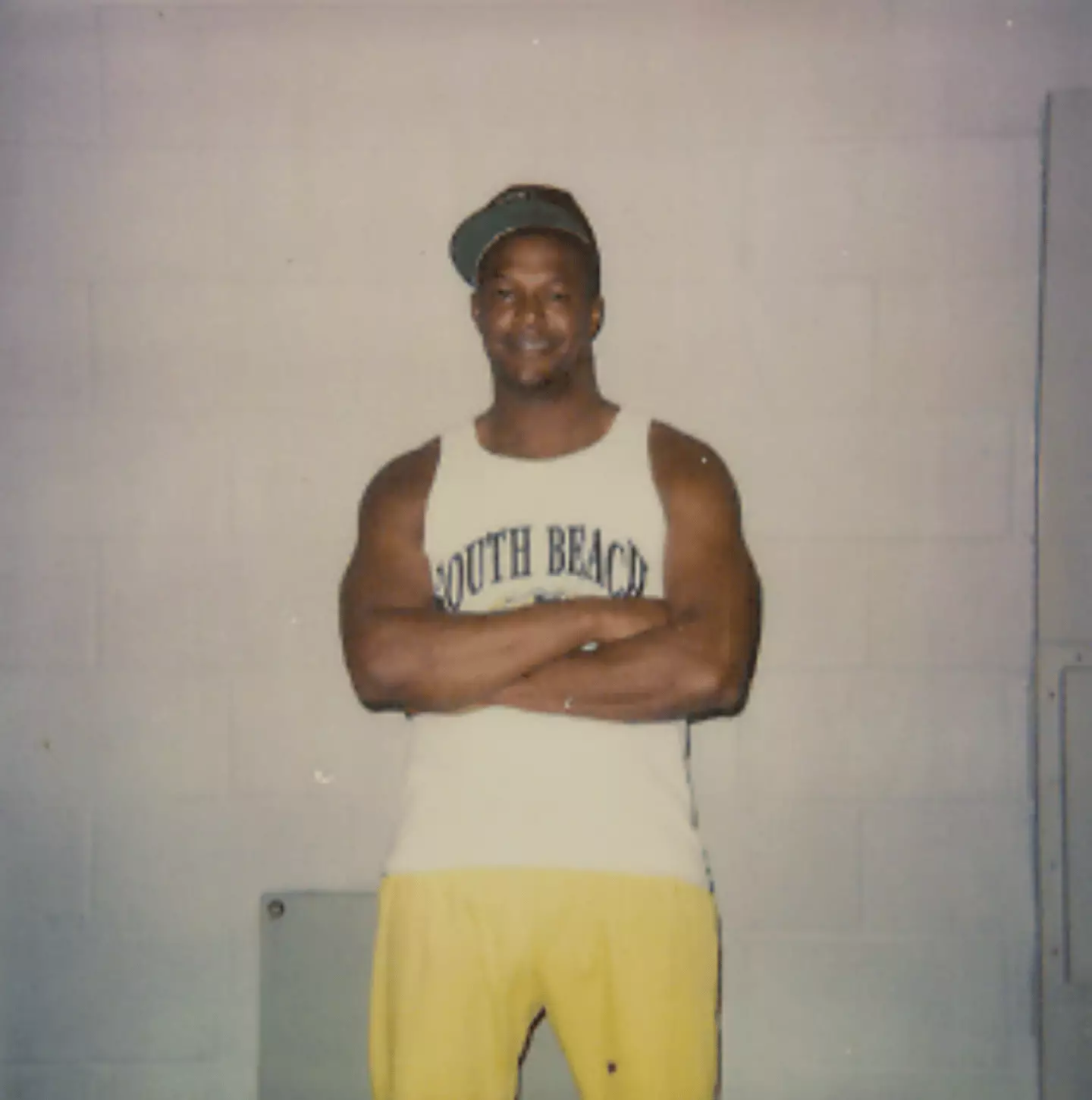
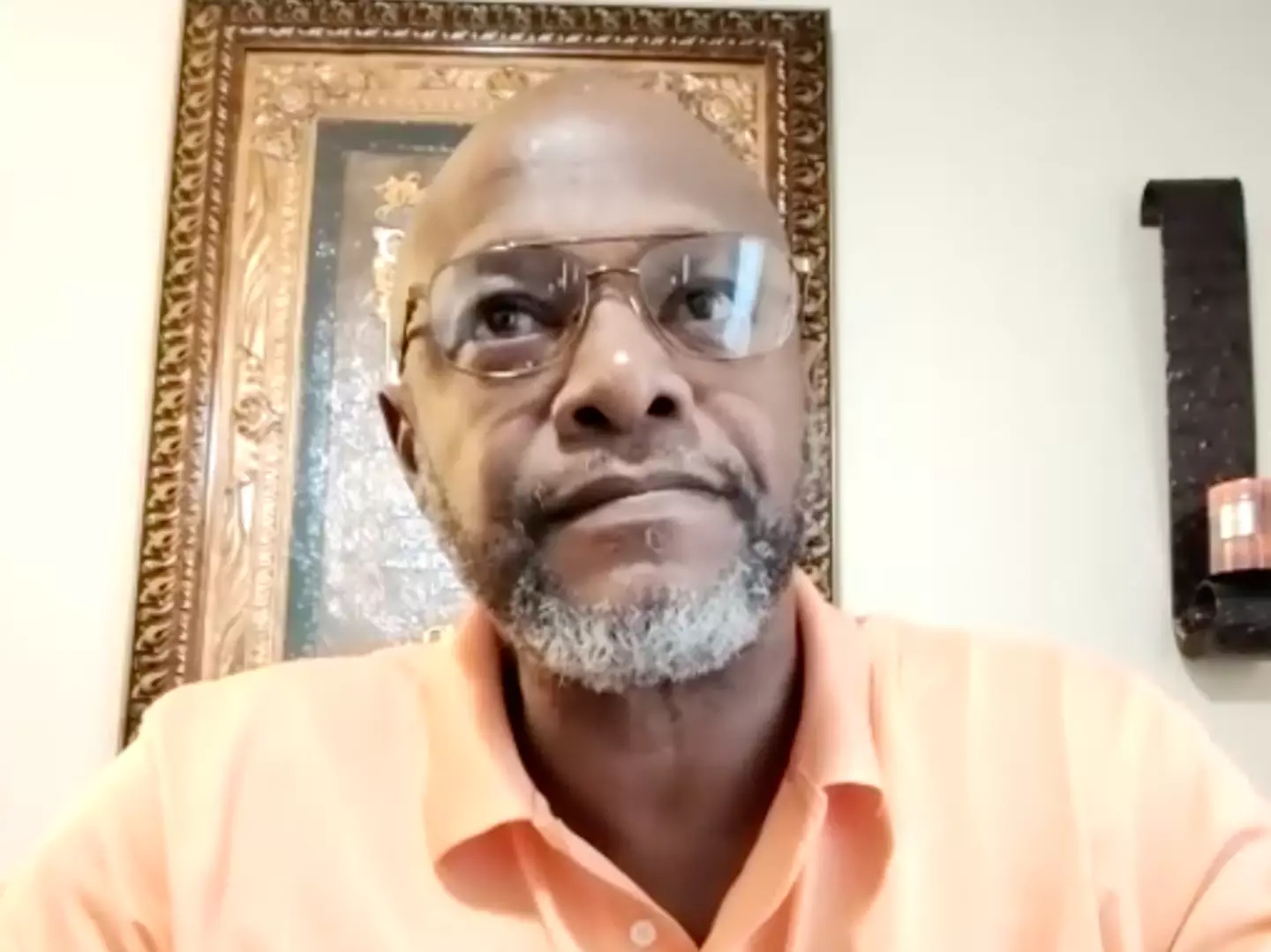

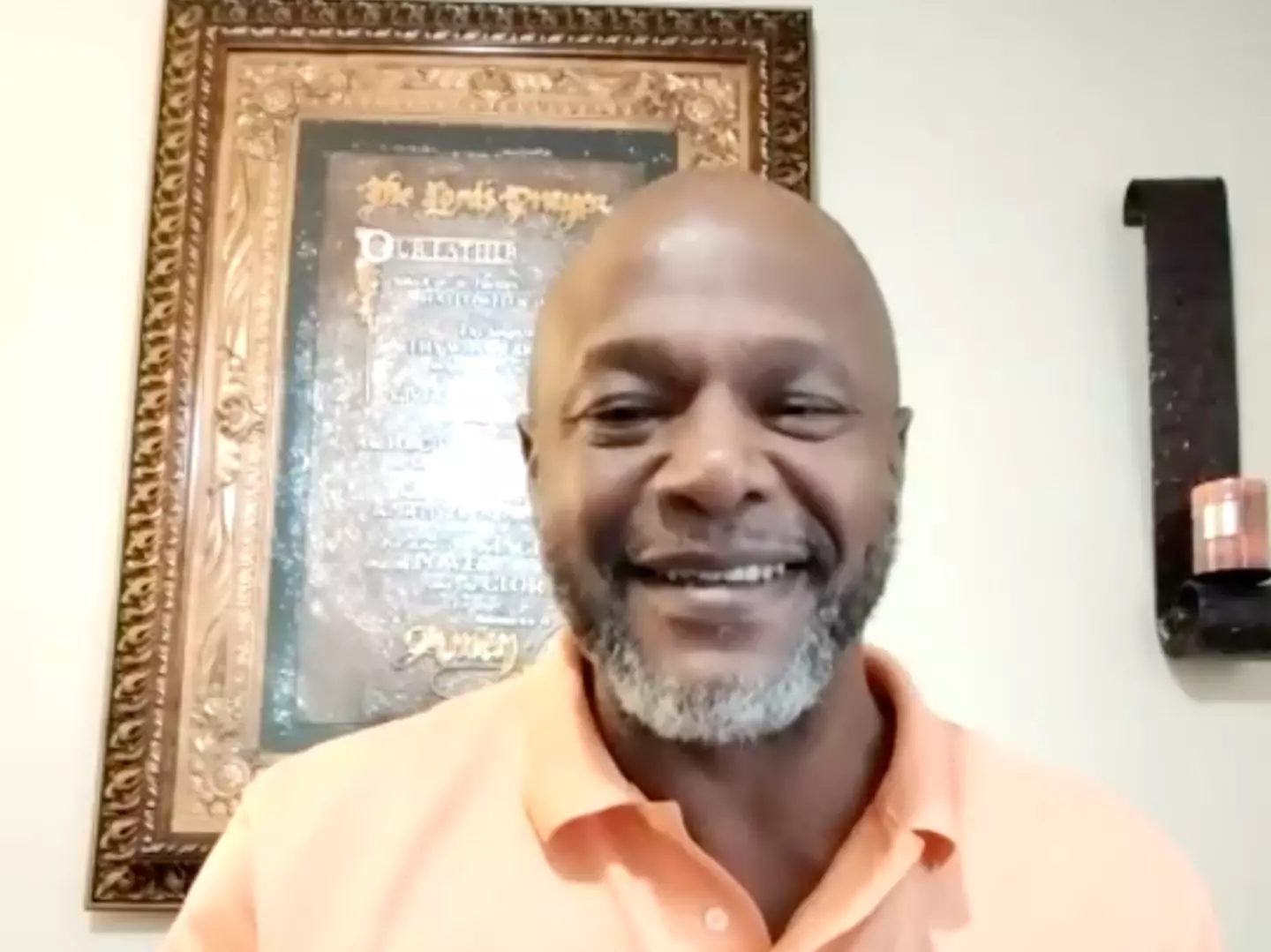

Surgeon Leonid Rogozov had been on an expedition to Antarctica when he developed acute appendicitis leaving him with a horrifying choice Kit Roberts Warning: This article contains graphic descriptions which some readers may find distressing. When becoming a doctor there are plenty of scenarios that you are trained for, not to mention the amount of learning you have to do on the job. But one surgeon found himself in the unenviable position of being the only medic in the vicinity, and then requiring emergency surgery . Leonid Rogozov had joined an expedition to Antarctica acting as the group's doctor for the trip . Gladiator 2 trailer When undertaking such an expedition, it's probably a good idea to have someone around who can tell a fibula from a tibia in case someone becomes sick. But in the case of the Soviet Antarctic expedition in 1961 the team of 12 may have wished they'd brought two doctors with them. The team had the Novolazarevskaya Station up and running by the Schirmacher Oasis in Antarctica in February 1961. But while still living in the middle of the polar wilderness the 27-year-old Rogozov began to feel weak, tired, and nauseous, before developing a pain down the right side of his abdomen. Rogozov speaking to his friend Yuri Vereschagin at Novolazarevskaya Station (Vladislav Rogozov) Any doctor worth their stethoscope can spot acute appendicitis immediately. The good news is if you're in a city or town it's an urgent but routine procedure to remove the appendix. The bad news was that the group was in Antarctica, and Rogozov was the only doctor. His son Vladislav told the BBC in 2015: "Being a surgeon, he had no difficulty in diagnosing acute appendicitis. " It was a condition he'd operated on many times, and in the civilized world it's a routine operation. But unfortunately he did not find himself in the civilized world - instead he was in the middle of a polar wasteland. " Given that acute appendicitis can lead to life-threatening conditions if not treated quickly, Rogozov was left in a horrifying position - he could either wait for help that would be unlikely to come in time, or he could attempt to perform an appendectomy on himself. To open his own abdomen, he did not know if that was humanly possible .
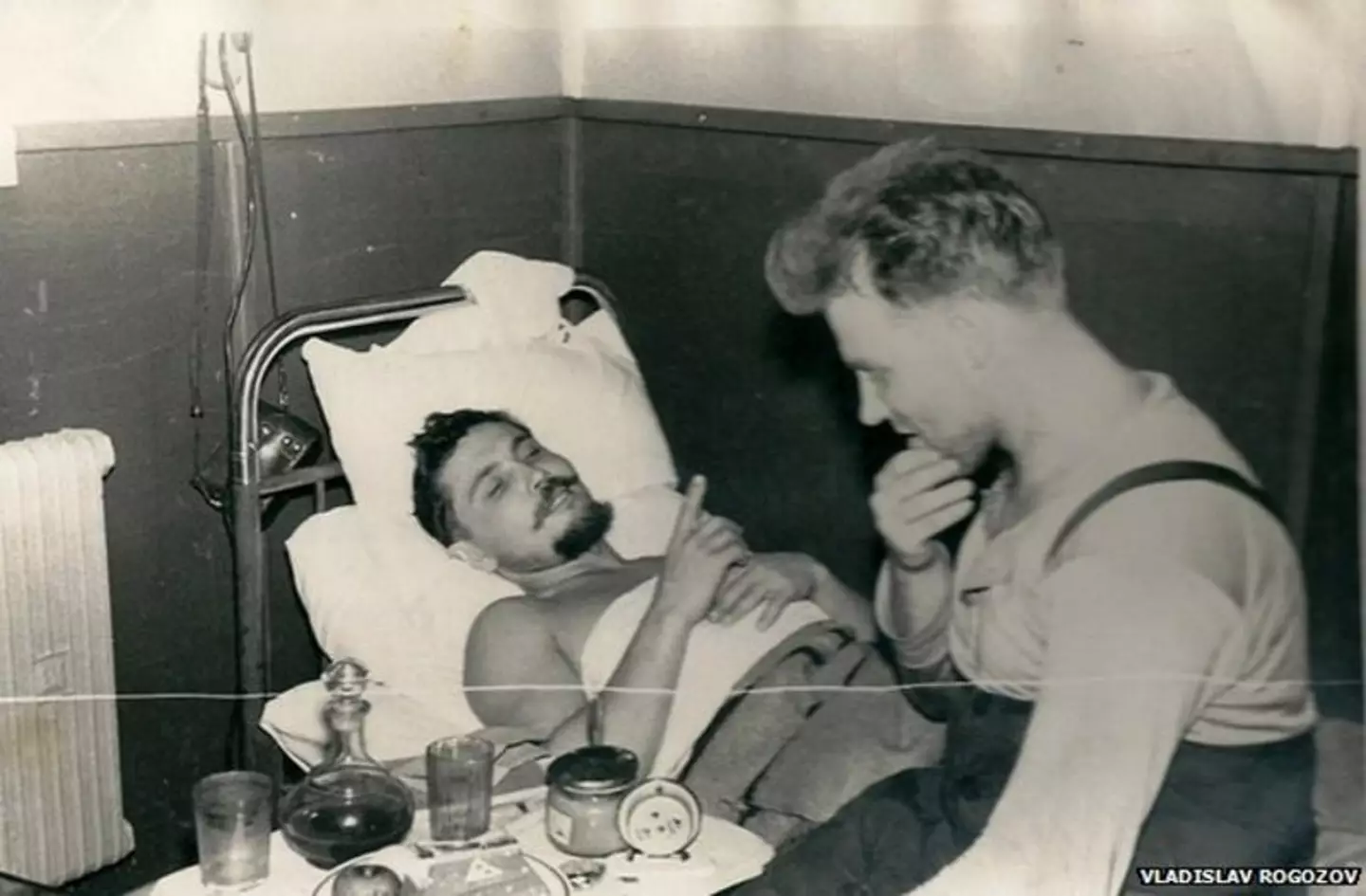
Rogozov would not be able to have that for obvious reasons, but he did administer a local anesthetic.

Rogozov would not be able to have that for obvious reasons, but he did administer a local anesthetic.

Rogozov carried out his own appendectomy (Vladislav Rogozov)
He would also have to keep his hands steady enough to not accidentally make a bad incision and bleed out.
Writing in his diary, Rogozov said: "Still no obvious symptoms that perforation is imminent, but an oppressive feeling of foreboding hangs over me… This is it… I have to think through the only possible way out - to operate on myself… It's almost impossible… but I can not just fold my arms and give up. " I
grow weaker and I head
here it is, the cursed appendage! With horror I notice the dark stain at its base. That means just a day longer and it would have burst… My heart seized up and noticeably slowed, my hands felt like rubber. Well, I thought, it's going to end badly and all that was left was removing the appendix. "
Following a procedure lasting two hours Rogozov was able to successfully remove his appendix, and would not rest until his assistants had scrubbed everything down, when he finally took antibiotics and sleeping tablets. After just two
weeks recovery, He passed away
aged 66 in 2000. . from lung cancer.Featured Image Credit :
Horrific story of a woman who was held captive for 25 years by
He would also have to keep his hands steady enough to not accidentally make a bad incision and bleed out.
Writing in his diary, Rogozov said: "Still no obvious symptoms that perforation is imminent, but an oppressive feeling of foreboding hangs over me… This is it… I have to think through the only possible way out - to operate on myself… It's almost impossible… but I can not just fold my arms and give up. " I
grow weaker and I head
here it is, the cursed appendage! With horror I notice the dark stain at its base. That means just a day longer and it would have burst… My heart seized up and noticeably slowed, my hands felt like rubber. Well, I thought, it's going to end badly and all that was left was removing the appendix. "
Following a procedure lasting two hours Rogozov was able to successfully remove his appendix, and would not rest until his assistants had scrubbed everything down, when he finally took antibiotics and sleeping tablets. After just two
weeks recovery, He passed away
aged 66 in 2000. . from lung cancer.Featured Image Credit :
Horrific story of a woman who was held captive for 25 years by

Her own mother Blanche Monnier was forced to face the consequences of her mother after dating a man she did not approve of Ella Scott Warning: This article contains content which some readers may be trapped in her own home for a respectable, middle-class family. said that the Monniers, who lived in a three-story manor home, were a well-known clan whose conservative ancestors were reportedly integral to establishing the small town. Ruling the roost was matriarch Louise who wanted her socialite daughter to find a suitable husband. However, it's alleged that she began to feel disgruntled as Blanche turned down a stream of suitors during courting season. In 1876, Blanche turned 27 and expressed the desire to marry an older lawyer, whom Louise had deemed ' penniless
'.
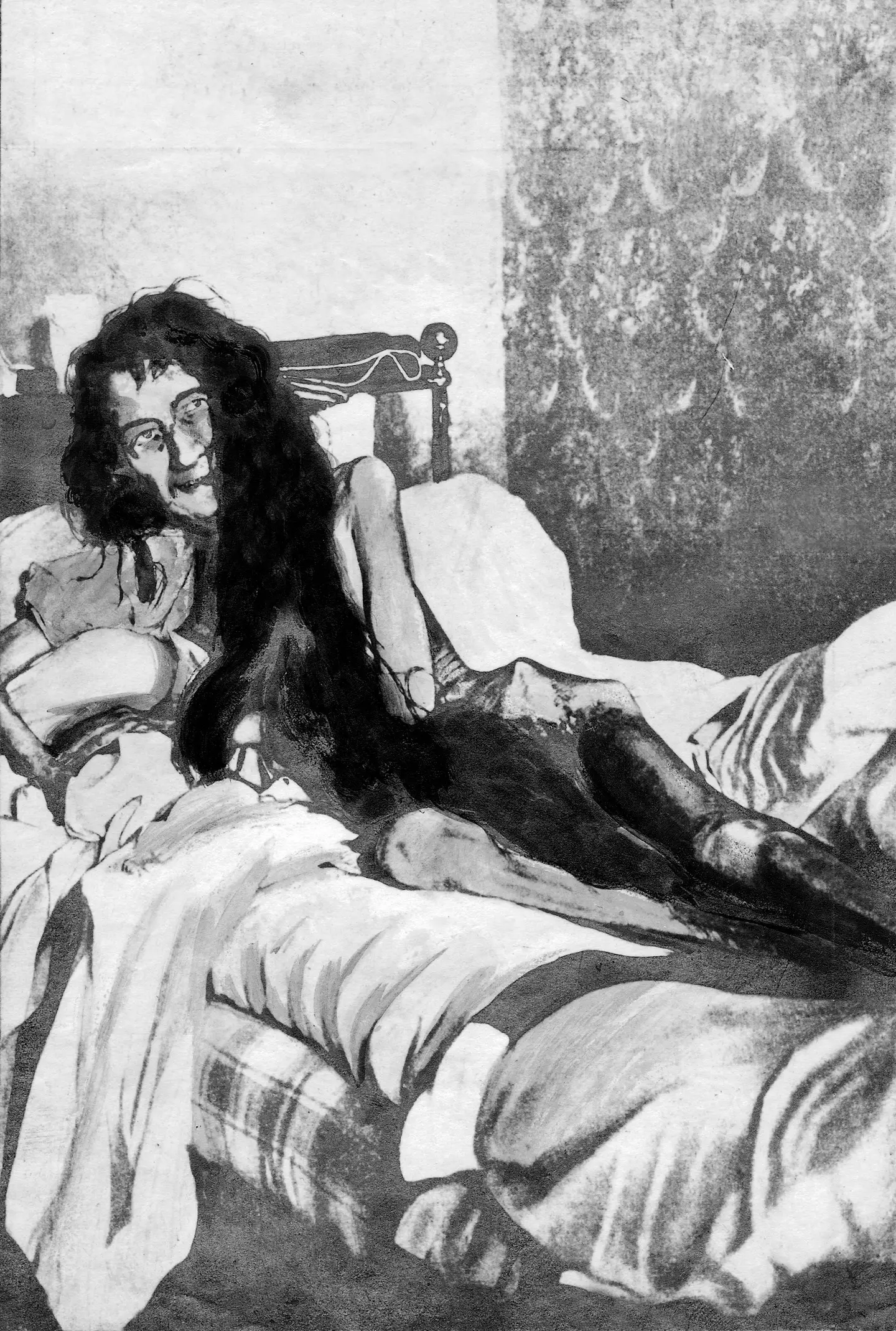
'.

Blanche Monnier was imprisoned by her mother Louise. (Apic / Getty Images)
Due to the anonymous man allegedly being disliked by the mother-of-two, Blanche was forbidden from seeing him - but that did not stop her.
It is said that the woman continued to date this older law practitioner and rumors of their relationship began to circulate around Poitiers.
In March 1875, Louise was seemingly angry with her daughter's defiance and experienced her final straw after Blanche returned to the family home after another meeting with the lawyer.
Following the rendezvous, Blanche mysteriously went missing and soon the town began questioning where the popular young woman had gone.
The Monniers claimed that their daughter had been sent to a medical facility for mental health problems and the lawyer eventually died not knowing the fate of his beloved.
But Blanche was not institutionalized - she was being kept under lock and key at the Monniers manor.
It is said that in 1901, the office of the Paris Attorney General of France received a harrowing letter from an anonymous source.
The correspondence, written in French, has since been translated to English and reads: “Monsieur Attorney General: I have the honor to inform you of an exceptionally serious occurrence.
Due to the anonymous man allegedly being disliked by the mother-of-two, Blanche was forbidden from seeing him - but that did not stop her.
It is said that the woman continued to date this older law practitioner and rumors of their relationship began to circulate around Poitiers.
In March 1875, Louise was seemingly angry with her daughter's defiance and experienced her final straw after Blanche returned to the family home after another meeting with the lawyer.
Following the rendezvous, Blanche mysteriously went missing and soon the town began questioning where the popular young woman had gone.
The Monniers claimed that their daughter had been sent to a medical facility for mental health problems and the lawyer eventually died not knowing the fate of his beloved.
But Blanche was not institutionalized - she was being kept under lock and key at the Monniers manor.
It is said that in 1901, the office of the Paris Attorney General of France received a harrowing letter from an anonymous source.
The correspondence, written in French, has since been translated to English and reads: “Monsieur Attorney General: I have the honor to inform you of an exceptionally serious occurrence.

Blanche died a decade after being freed. (Caras y Caretas)
"I speak of a spinster who is locked up in Madame Monnier's house, half-starved and living on a putrid litter for the past twenty-five years - in a word, in her own filth."
Despite being sceptical about the initial message, officials were later deployed to the Monniers home where Louise admitted that the allegations were correct.
She took the inspectors up to the third floor where Blanche had been kept as a malnourished prisoner for 25 years.
One policeman later recounted that Blanche was 'lying completely naked on a rotten straw mattress' surrounded by a crust made from 'excrement, fragments of meat, vegetables, fish and rotten bread'.
"We also saw oyster shells and bugs running across Mademoiselle Monnier's bed," he continued. "The air was so unbreathable, the odor given off by the room was so rank, that it was impossible for us to stay any longer to proceed with our investigation."
Following the discovery of Blanche, Louise was arrested and the woman was taken to hospital where it was thought she could die due to lack of sustenance.
Louise claimed that her daughter had become ill and suffered a mental breakdown and that she did 'all she could' to keep her alive.
Unfortunately, Louise never faced trial as she died 15 days after her capture, at the age of 75.
Play
Instead, her son and Blanche's brother, Marcel Monnier, appeared in court and was initially convicted of criminal confinement and the torture of his sister.
He maintained his innocence but was later sentenced to serve 15 months behind bars.
However, he was eventually acquitted on appeal; he was deemed mentally incapacitated and judges found a 'duty to rescue' did not exist in legislation.
Following Blanche's hospital stay, she regained weight and partially recovered from her horrifying ordeal.
She suffered from anorexia nervosa and schizophrenia and lived out the rest of her life in a sanitarium.
Blanche died on October 13, 1913 at the age of 64 and became the subject of author André Gide's 1930 book, La Séquestrée de Poitiers.
It's said that the Nobel Prize in Literature-winning writer changed little of this haunting tale but the name of the protagonists.Featured Image Credit: Wikimedia Commons
Topics: History , Europe , France , Mental Health , Health
Woman who miraculously survived boat propeller chopping her bottom off recalls the pain she felt
"I speak of a spinster who is locked up in Madame Monnier's house, half-starved and living on a putrid litter for the past twenty-five years - in a word, in her own filth."
Despite being sceptical about the initial message, officials were later deployed to the Monniers home where Louise admitted that the allegations were correct.
She took the inspectors up to the third floor where Blanche had been kept as a malnourished prisoner for 25 years.
One policeman later recounted that Blanche was 'lying completely naked on a rotten straw mattress' surrounded by a crust made from 'excrement, fragments of meat, vegetables, fish and rotten bread'.
"We also saw oyster shells and bugs running across Mademoiselle Monnier's bed," he continued. "The air was so unbreathable, the odor given off by the room was so rank, that it was impossible for us to stay any longer to proceed with our investigation."
Following the discovery of Blanche, Louise was arrested and the woman was taken to hospital where it was thought she could die due to lack of sustenance.
Louise claimed that her daughter had become ill and suffered a mental breakdown and that she did 'all she could' to keep her alive.
Unfortunately, Louise never faced trial as she died 15 days after her capture, at the age of 75.
Play
Instead, her son and Blanche's brother, Marcel Monnier, appeared in court and was initially convicted of criminal confinement and the torture of his sister.
He maintained his innocence but was later sentenced to serve 15 months behind bars.
However, he was eventually acquitted on appeal; he was deemed mentally incapacitated and judges found a 'duty to rescue' did not exist in legislation.
Following Blanche's hospital stay, she regained weight and partially recovered from her horrifying ordeal.
She suffered from anorexia nervosa and schizophrenia and lived out the rest of her life in a sanitarium.
Blanche died on October 13, 1913 at the age of 64 and became the subject of author André Gide's 1930 book, La Séquestrée de Poitiers.
It's said that the Nobel Prize in Literature-winning writer changed little of this haunting tale but the name of the protagonists.Featured Image Credit: Wikimedia Commons
Topics: History , Europe , France , Mental Health , Health
Woman who miraculously survived boat propeller chopping her bottom off recalls the pain she felt

She was injured by a boat propellor in an accident Kit Roberts A woman who suffered a horrendous boating accident that saw her bottom get 'chopped off' has shared her experience now she is on the road to recovery. Kenzey Hunt, 20, had been out tubing with her sister in South Carolina when the shocking incident happened. For those unfamiliar with water-based recreation , tubing is where someone sits in a big rubber tube and is pulled along a body of water by a boat at usually fast speeds. But what should have been an afternoon of fun turned into a nightmare for Kenzey when the boat which had towed her swung around to pick her back up again. In a horrendous accident, Kenzey ended up caught in the boat's propellor which caused awful injuries to her bottom. The 20-year-old has since taken to TikTok to document her recovery from the injury. Describing the incident, she said: "He made a really sharp U-turn and the rope was really slacked, and he just came, hit me, head on, and I was still laying on the tube headfirst." TikTok / @ sydhunt She went on to talk about how her injuries had resulted in her rear end being 'open' and having to be reassembled by medics . and there was just blood everywhere. ”

When the boat came round to pick her up she was sucked underneath it, where she became caught in the propellor as well as being whipped by ropes when she resurfaced.
Kenzey was rushed to hospital to receive treatment for a huge gashing injury on her rear end, as well as propellor bruises going down her leg, deep cuts and fractures to her foot and a fracture to her pelvis.
She also had to use an ostomy bag for three months.
Kenzey was rushed to hospital to receive treatment for a huge gashing injury on her rear end, as well as propellor bruises going down her leg, deep cuts and fractures to her foot and a fracture to her pelvis.
She also had to use an ostomy bag for three months.

TikTok / @ sydhunt
Her injuries left her unable to sit down for some three months, and she described them as 'unique'.
She said: "My injuries are unique, and with not being able to put any weight on my butt or foot, [it] makes moving around and relaxing difficult."
Despite everything, she seems optimistic and is looking forward to getting back on her. feet, or back on her rear end, again.
Speaking of things she's looking forward to, I can not wait to just be independent and be able to take care of myself. things like sitting, driving, walking normal, getting ready, sitting at a restaurant ... so many things. ”Featured Image Credit: TikTok / @ kenzandsyd
Topics: Health , US News , TikTok
Wrongly convicted man survived 23 years on death row. knowing he was innocent

Her injuries left her unable to sit down for some three months, and she described them as 'unique'.
She said: "My injuries are unique, and with not being able to put any weight on my butt or foot, [it] makes moving around and relaxing difficult."
Despite everything, she seems optimistic and is looking forward to getting back on her. feet, or back on her rear end, again.
Speaking of things she's looking forward to, I can not wait to just be independent and be able to take care of myself. things like sitting, driving, walking normal, getting ready, sitting at a restaurant ... so many things. ”Featured Image Credit: TikTok / @ kenzandsyd
Topics: Health , US News , TikTok
Wrongly convicted man survived 23 years on death row. knowing he was innocent

Sherwood Brown spent 23 years on Mississippi death row for a triple murder he did not commit Poppy Bilderbeck Warning: This The article contains mentions of violence and suicidal thoughts which some readers may find distressing. Sherwood Brown spent 23 years of his life on the Mississippi death row for crimes he did not commit. How would you motivate yourself to survive if you were wrongly sent to prison for a triple murder, handed the death penalty and spent more than two decades on death row ? Sherwood was sentenced in 1995, beginning the 23 years he spent on death row for crimes he did not commit. This is how he survived. What led to Sherwood's conviction On January 6 1993, 13-year-old Evangela Boyd, her mother, 48-year-old Verline, and 82-year-old grandmother, Betty, from DeSoto County, Mississippi, were killed. Two years later, 26-year-old Sherwood was convicted of their murders. Death Penalty Info reports the conviction relied heavily upon several testimonies and alleged evidence - an FBI agent testifying blood was found on a pair of Sherwood's shoes, however, they 'could not confirm absolutely the presence of blood' in a 'confirmatory test'.
Another said they weren't 'able to determine positively' whether a pair of Sherwood's shoes matched bloody footprints found at the Boyds' house.
A doctor testified it was 'highly probable' a cut on Sherwood's wrist had been made by Evangela, but later said they could not say with 'absolute certainty' or even 'reasonable certainty'.
And - while facing serious charges themselves - one of Sherwood's former friends claimed they'd heard him admit to the crimes. They received no prison time in return for their testimony.

Sherwood was sentenced to death in 1995. (Death Penalty Information Center)
Receiving the death sentence
Sherwood was subsequently convicted on one count of capital murder and handed the death sentence alongside two consecutive life sentences.
The now-56-year-old tells UNILAD it took 'a lot of years being on death row to really realize' he was there.
"I actually thought I was going to die within the next month," Sherwood said. "They sentence you to a date and I'm sitting there in my cell, preparing myself to get executed."
Receiving the death sentence
Sherwood was subsequently convicted on one count of capital murder and handed the death sentence alongside two consecutive life sentences.
The now-56-year-old tells UNILAD it took 'a lot of years being on death row to really realize' he was there.
"I actually thought I was going to die within the next month," Sherwood said. "They sentence you to a date and I'm sitting there in my cell, preparing myself to get executed."

Sherwood was held in the Mississippi State Penitentiary for 23 years. (Google Maps)
Death row
"It almost happened, but it did not."
Instead, Sherwood would spend the next 23 years receiving the same hole-filled tray of food , spending 23 hours a day in his cell with fleeting trips outside in the chicken coop 'pens'.
He faced racial discrimination, 'got jumped by a lot of guys,' saw 'a couple of guys get killed' and even 'got stabbed in the neck' himself, but bar some self defense, he never hit back.
Why? Sherwood knew he was innocent and did not want to risk anything jeopardizing future freedom.
"We [were] supposed to be fighting for our life on death row [but] we tried to kill each other."
And Sherwood also had another battle to fight - not giving up.
Death row
"It almost happened, but it did not."
Instead, Sherwood would spend the next 23 years receiving the same hole-filled tray of food , spending 23 hours a day in his cell with fleeting trips outside in the chicken coop 'pens'.
He faced racial discrimination, 'got jumped by a lot of guys,' saw 'a couple of guys get killed' and even 'got stabbed in the neck' himself, but bar some self defense, he never hit back.
Why? Sherwood knew he was innocent and did not want to risk anything jeopardizing future freedom.
"We [were] supposed to be fighting for our life on death row [but] we tried to kill each other."
And Sherwood also had another battle to fight - not giving up.

Sherwood before he went to prison. (Supplied)
Holding on to hope
"Year after year, my case kept getting turned down. Sometimes you want to give up. It makes you want to give up," Sherwood says. "You want to kill yourself. But [...] if you kill yourself how can you prove you're innocent? Then people will say, 'Well, he killed himself because he was guilty'."
But day after day, week after week - for over 20 years - Sherwood did not give up. He survived. Motivated to 'come home' for his family.
In the time he was locked up, Sherwood sadly lost his mom, grandmother and 'big momma' - "People that really cared about me and [who] wanted to see me home."
Nevertheless,the motivation to make it out for the rest of his loved ones kept him going on top of 'the anger' of knowing he was innocent.
Holding on to hope
"Year after year, my case kept getting turned down. Sometimes you want to give up. It makes you want to give up," Sherwood says. "You want to kill yourself. But [...] if you kill yourself how can you prove you're innocent? Then people will say, 'Well, he killed himself because he was guilty'."
But day after day, week after week - for over 20 years - Sherwood did not give up. He survived. Motivated to 'come home' for his family.
In the time he was locked up, Sherwood sadly lost his mom, grandmother and 'big momma' - "People that really cared about me and [who] wanted to see me home."
Nevertheless,the motivation to make it out for the rest of his loved ones kept him going on top of 'the anger' of knowing he was innocent.

Sherwood said it took 'a lot of years of being on death row' to realize he was there. (UNILAD)
"It was killing me at the same time, but it kept me motivated because I knew I hadn't done anything.
" I was constantly saying in my head: 'You gonna go home, you gonna go home' . 2018, Mississippi Supreme Court reversed Sherwood's convictions based on DNA testing and false evidence, and he was transferred to Desoto County jail while his case was re-investigated. In August 2021, it was decided Sherwood would not be re-tried but set free. - his release day 'the best day', but 'a sad day' too. I did not get a chance to show her [his mom] that . left some of the tags, 'but when he finally walked out of the prison gates he felt confused. Sherwood was released in 2021. (Christina Steube / Supplied) "I did not know if I wanted to be happy, I did know if I wanted to cry - I couldn't cry. I think it took a minute to realize that I was out. " Sherwood's first meal when he left prison was a 'big old steak'. "And big old thing of fries. I didn't know if I was supposed to pick it up with both of my hands - I'm trying to think which hand to use to hold a fork in and cut with the knife." Sherwood's The first meal was steak and chips. (Supplied) "It was one of the best days of my life, but [ ... ] after being locked up for 28 years [five of those in standard prisons], everything was new. ", But he carries 23 years' worth of memories and experiences with him , saying he feels 'messed up inside' . people 'still judge' him and look at him 'sideways' to this day . has been home I'm not young anymore.

"Sherwood used to want to seek 'vengeance' but his life and freedom is worth more to him than that. (UNILAD) Sherwood has also yet to see his former friend who provided statements which led to his conviction - despite asking to see him. "Not to do anything to him - I'm not trying to lose my life to go back into the system again - just to ask him 'why? Why did you throw my life away?
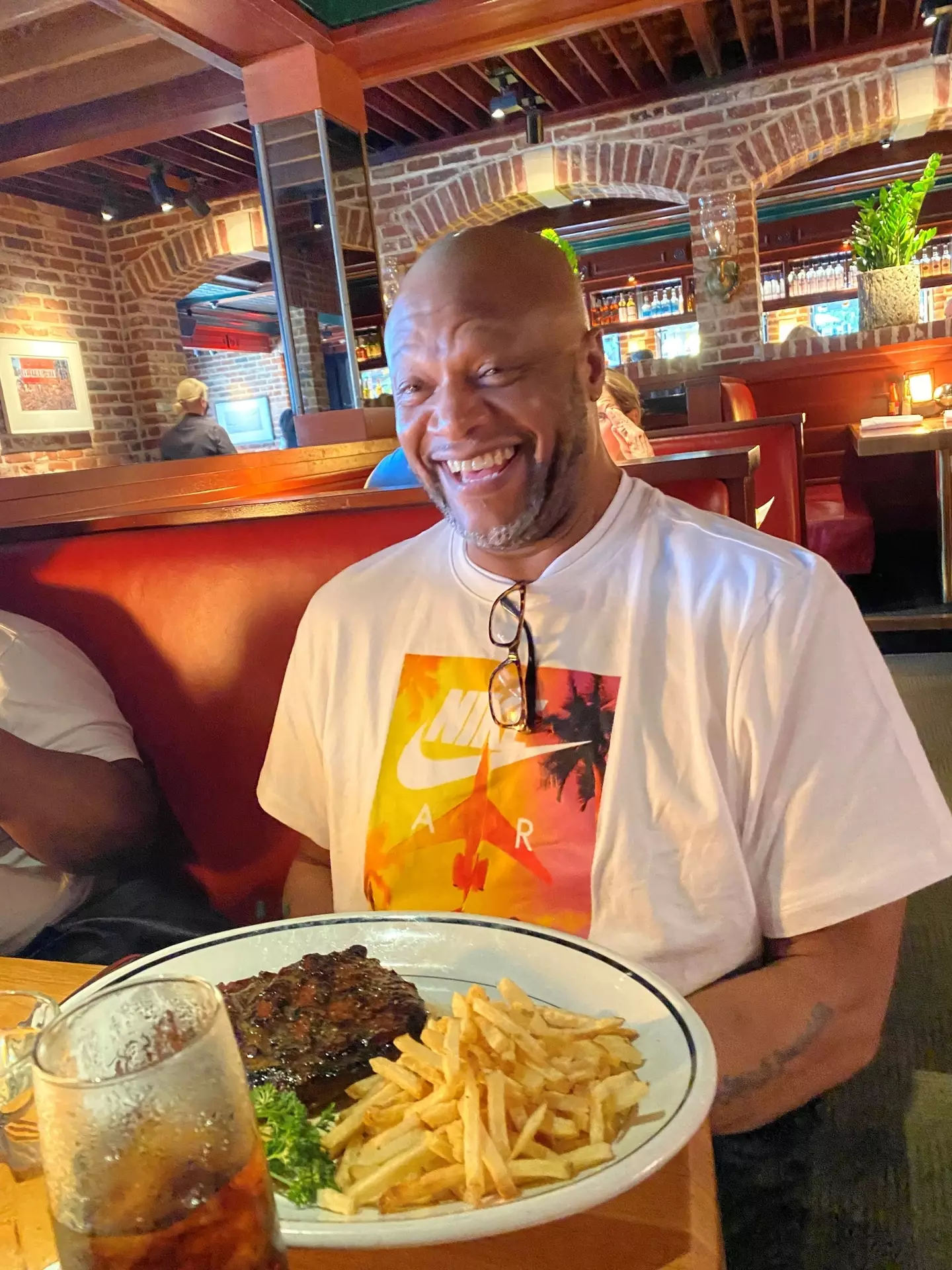
'"Sherwood explains." I feel like I can move on with my life if I hear him say something, or nothing. "However, Sherwood admits he's not always felt this way - the idea of 'vengeance' keeping him motivated on death row too." I used to work out every day - hard - just to try to keep my body in shape, "he says., Explaining he used to wet old legal papers and stuff them into garbage bags.
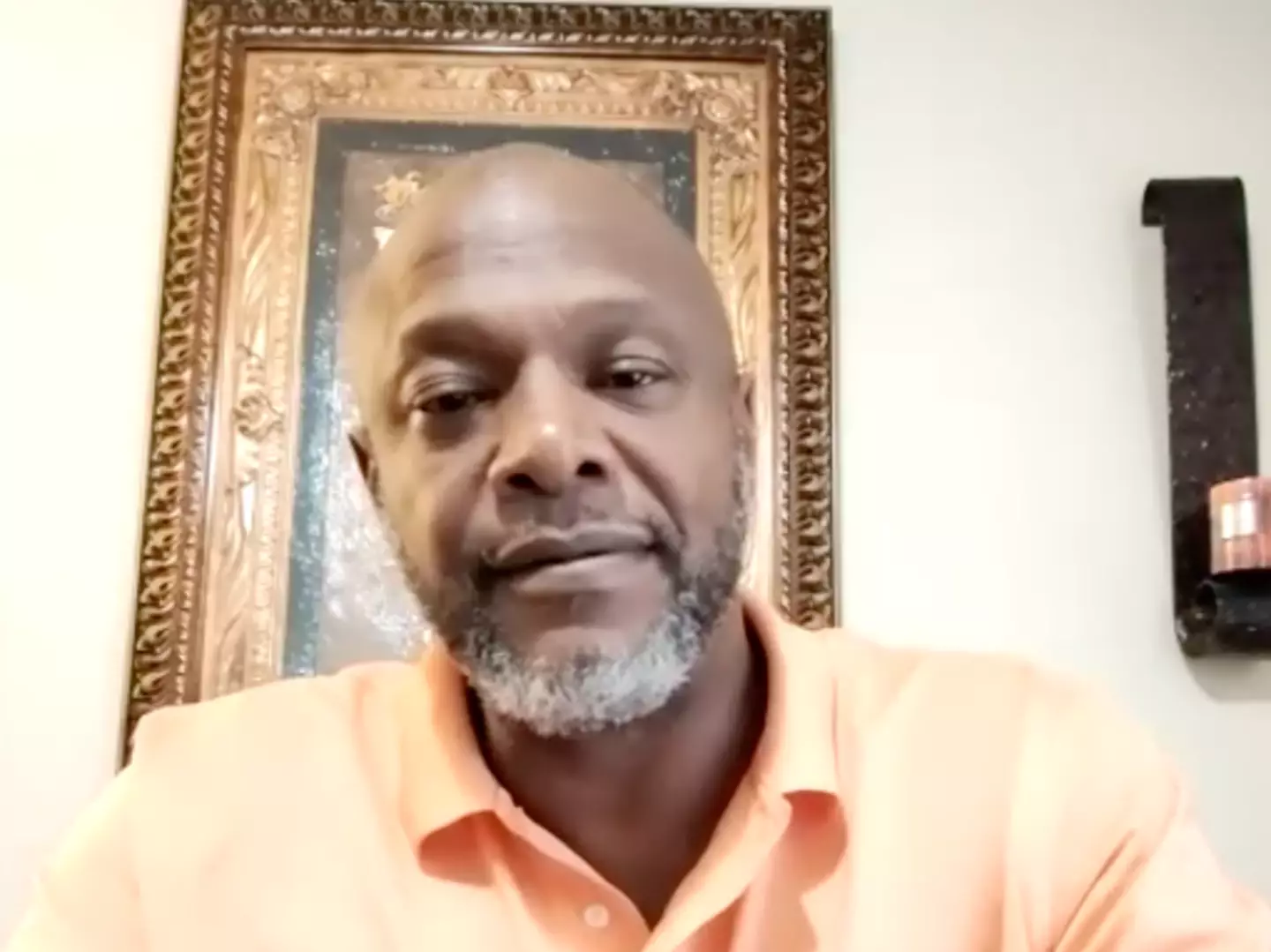
However, one of his friends on death row turned around to him and said: "Man, you know something? You ain't doing nothing but hurting yourself. '"
And Sherwood now hopes to offer similar advice to others who remain behind bars.
"It was killing me at the same time, but it kept me motivated because I knew I hadn't done anything.
" I was constantly saying in my head: 'You gonna go home, you gonna go home' . 2018, Mississippi Supreme Court reversed Sherwood's convictions based on DNA testing and false evidence, and he was transferred to Desoto County jail while his case was re-investigated. In August 2021, it was decided Sherwood would not be re-tried but set free. - his release day 'the best day', but 'a sad day' too. I did not get a chance to show her [his mom] that . left some of the tags, 'but when he finally walked out of the prison gates he felt confused. Sherwood was released in 2021. (Christina Steube / Supplied) "I did not know if I wanted to be happy, I did know if I wanted to cry - I couldn't cry. I think it took a minute to realize that I was out. " Sherwood's first meal when he left prison was a 'big old steak'. "And big old thing of fries. I didn't know if I was supposed to pick it up with both of my hands - I'm trying to think which hand to use to hold a fork in and cut with the knife." Sherwood's The first meal was steak and chips. (Supplied) "It was one of the best days of my life, but [ ... ] after being locked up for 28 years [five of those in standard prisons], everything was new. ", But he carries 23 years' worth of memories and experiences with him , saying he feels 'messed up inside' . people 'still judge' him and look at him 'sideways' to this day . has been home I'm not young anymore.

"Sherwood used to want to seek 'vengeance' but his life and freedom is worth more to him than that. (UNILAD) Sherwood has also yet to see his former friend who provided statements which led to his conviction - despite asking to see him. "Not to do anything to him - I'm not trying to lose my life to go back into the system again - just to ask him 'why? Why did you throw my life away?

'"Sherwood explains." I feel like I can move on with my life if I hear him say something, or nothing. "However, Sherwood admits he's not always felt this way - the idea of 'vengeance' keeping him motivated on death row too." I used to work out every day - hard - just to try to keep my body in shape, "he says., Explaining he used to wet old legal papers and stuff them into garbage bags.

However, one of his friends on death row turned around to him and said: "Man, you know something? You ain't doing nothing but hurting yourself. '"
And Sherwood now hopes to offer similar advice to others who remain behind bars.

Sherwood on his day of release (Christina Steube / Supplied)
Why Sherwood returns to death row
Since 1973, Sherwood is the 100th African-American in the US be exonerated from a wrongful capital conviction and death sentence.
His voice and story are just one of many more innocent people currently imprisoned on death row, awaiting their executions.
Sherwood urges them: "Just do not give up. Sometimes I know your mind play tricks on you, but do not give up."
And Sherwood still visits death row - or what he refers to as 'home' - too.
"People look at me when I said that was my home, but that was my home. That was my family, [...] the guys I knew for almost 30 years."
While he shouldn't ever have been there, Sherwood says death row 'saved' him.
"Even though it were bad for me, [it] saved my life [...] from being in the street or getting killed," he explains. "But it also put me in a situation of getting killed by the state of Mississippi. And then I also had to fight for my life inside - that was the hardest part.
" You do not want to do anything to jeopardize you getting out. "
It's a 'blessing' for Sherwood to be out, but he can not help but 'feel bad' for the others he's 'left behind'.
Why Sherwood returns to death row
Since 1973, Sherwood is the 100th African-American in the US be exonerated from a wrongful capital conviction and death sentence.
His voice and story are just one of many more innocent people currently imprisoned on death row, awaiting their executions.
Sherwood urges them: "Just do not give up. Sometimes I know your mind play tricks on you, but do not give up."
And Sherwood still visits death row - or what he refers to as 'home' - too.
"People look at me when I said that was my home, but that was my home. That was my family, [...] the guys I knew for almost 30 years."
While he shouldn't ever have been there, Sherwood says death row 'saved' him.
"Even though it were bad for me, [it] saved my life [...] from being in the street or getting killed," he explains. "But it also put me in a situation of getting killed by the state of Mississippi. And then I also had to fight for my life inside - that was the hardest part.
" You do not want to do anything to jeopardize you getting out. "
It's a 'blessing' for Sherwood to be out, but he can not help but 'feel bad' for the others he's 'left behind'.

Despite leaving death row, Sherwood frequently returns to support others still there and is campaigning for important change (UNILAD)
He says: "You get to see the good in people and you get to see the bad - and some people shouldn't be there.
"I must speak on their behalf. There's a lot of guys on death row, their whole life has changed - you get older, you change.
" People don't like to see you do good, they only want to see bad. "
At the time of writing, Sherwood has yet to receive any sort of compensation or apology from the state of Mississippi.
He has since been working alongside the Innocence Project , the law firm Fish & Richardson - which represented him pro-bono - and employment. charity in Memphis to help raise awareness and support those who remain imprisoned.
My final question to Sherwood is: "Having been confronted with death, what advice would you give to life?
"means to you until you get your life back. Life is precious. Life is everything. In fact, if I could start my whole life all the way over again,From my childhood to coming back up, I think I would be something good.
"Yeah, I will be something good. And trying to make a change. But I need help."
To help support Sherwood, you can donate to his CashApp - $ brownsherwood1968 - and you can support the projects he's involved with by following the links above.
UNILAD's Survivors series sheds light on different survival experiences and the lessons learned from facing death. New interviews are being released daily beginning May 20.Featured Image Credit: Mississippi Department of Corrections / Christina Steube / Supplied
Topics: US News , Crime , True crime , Health , Mental Health
He says: "You get to see the good in people and you get to see the bad - and some people shouldn't be there.
"I must speak on their behalf. There's a lot of guys on death row, their whole life has changed - you get older, you change.
" People don't like to see you do good, they only want to see bad. "
At the time of writing, Sherwood has yet to receive any sort of compensation or apology from the state of Mississippi.
He has since been working alongside the Innocence Project , the law firm Fish & Richardson - which represented him pro-bono - and employment. charity in Memphis to help raise awareness and support those who remain imprisoned.
My final question to Sherwood is: "Having been confronted with death, what advice would you give to life?
"means to you until you get your life back. Life is precious. Life is everything. In fact, if I could start my whole life all the way over again,From my childhood to coming back up, I think I would be something good.
"Yeah, I will be something good. And trying to make a change. But I need help."
To help support Sherwood, you can donate to his CashApp - $ brownsherwood1968 - and you can support the projects he's involved with by following the links above.
UNILAD's Survivors series sheds light on different survival experiences and the lessons learned from facing death. New interviews are being released daily beginning May 20.Featured Image Credit: Mississippi Department of Corrections / Christina Steube / Supplied
Topics: US News , Crime , True crime , Health , Mental Health

